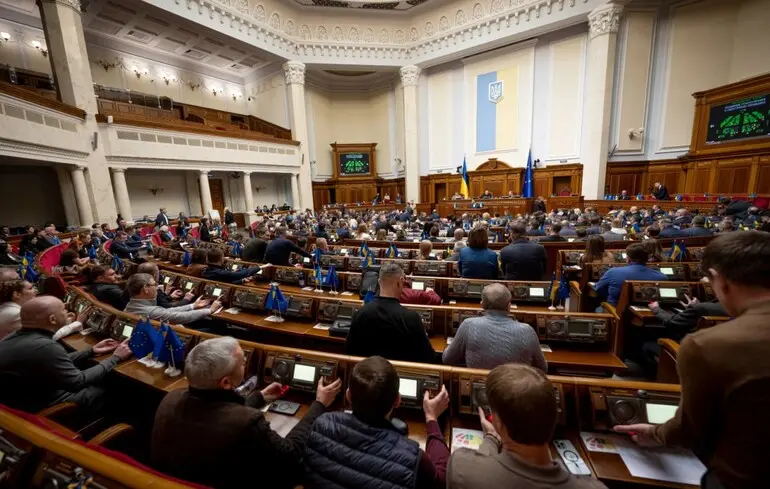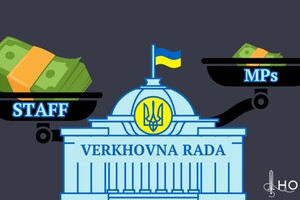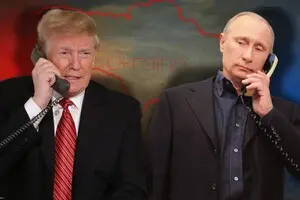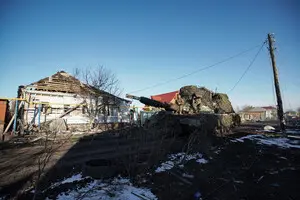Parliament of war: The Verkhovna Rada works longer in wartime than in peace

911 days. That's how much time has elapsed since the first meeting of the Verkhovna Rada of Ukraine of the ninth convocation to the day when the parliament approved the decrees of the President of Ukraine on the declaration of martial law and general mobilization. On September 3, 2024, when the Verkhovna Rada opened its twelfth session, 923 days had passed since the declaration of martial law in 2022. That is, the Verkhovna Rada of Ukraine has been working under martial law for more time than in the usual format. Undoubtedly, the war in Ukraine has been going on since 2014, but the challenges that have arisen since February 24, 2022, have been unprecedented.
Back then, the parliament was forced to adapt to the new life, and this was reflected not only in the content of legislative initiatives but also in the structure of the lawmaking process itself. In the last three sessions, no more than 5 percent of the adopted bills were registered before the full-scale invasion. In fact, the Verkhovna Rada has formed a new agenda adapted to the war conditions. However, it is gradually losing its "emergency" character and taking on the features of a regular parliamentary process. The Agency for Legislative Initiatives monitored the work of the Verkhovna Rada from September 2024 to February 2025. Below are the key findings and trends.
Return to the "peaceful" pace of lawmaking
The parliament has returned to the "peaceful" pace of work that existed before the full-scale invasion. The average time for adopting draft laws and the time spent on discussions in the plenary hall have increased significantly.
One of the most noticeable changes in the work of the Verkhovna Rada is the gradual return to the pre-war pace of consideration of draft laws. At the beginning of the full-scale invasion (the seventh session of the Verkhovna Rada), bills were adopted quickly, consensually and efficiently, with 90 percent of the bills being considered in the first reading in less than two minutes.
Over the course of three years of the full-scale invasion, the average duration of the passage of draft laws from registration to adoption in the second reading has gradually increased. During this time, so many bills of the "military" agenda have accumulated that the average duration of their passage reached a record 335 days, the longest in the entire history of the ninth convocation. This means that the speed of passing laws, which was very high in the first months of the full-scale war, has now returned to the standard level.
Another confirmation of the return to the pre-war mode of operation is the growing duration of discussions of draft laws in the session hall. Discussions have returned to the Verkhovna Rada, and they are becoming increasingly lengthy. Some indicators for the last year and a half already show that even longer periods of time are spent now than prior to the invasion. Sometimes MPs discuss a single bill for three hours or more in the session hall. If this trend continues, we will soon be able to talk about new records for the ninth convocation.
How can this change be explained?
While in the first six months of the war there was a need to quickly adapt legislation to the conditions of martial law and the realities of the full-scale war, now the parliament no longer needs to pass laws on an emergency basis. The Verkhovna Rada now has more time to study and discuss bills. In addition, issues not directly related to martial law have returned to the agenda.
Second, the share of draft laws that receive unanimous support has decreased. In the first months of the war, MPs adopted most decisions almost consensually, as they dealt with urgent security and defense needs. Now this period of "unity" is over, and the Parliament is increasingly facing controversial issues, which leads to much longer debates.
Thirdly, the easing of information restrictions on the coverage of the Verkhovna Rada's work has helped to bring back longer plenary sessions. MPs have again begun to actively use the parliamentary rostrum as a platform to communicate their positions. While in the first months of the full-scale invasion, plenary sessions were held in the most closed environment, journalists have now returned to the parliament, and political statements have become an integral part of the work of the Verkhovna Rada, although online broadcasts of the sessions have not yet been resumed.
And finally, there are security issues. In 2022, the Verkhovna Rada sessions were held under a high level of threat, so limiting the length of discussions was an important step from a security perspective. Now that Russian troops are no longer advancing on Kyiv, MPs feel more confident and can afford longer discussions.
Legislative spam and the Restoring Ukraine group
The situation with legislative spam in the Ukrainian parliament is rather ambiguous. In general, we can talk about positive trends observed over the past year. The number of registered bills is gradually decreasing. An increasing number of initiatives is resulting from collective work rather than individual activities of MPs. And this is a good sign. Let us emphasize once again that a large number of bills registered does not prove an MP's effectiveness. On the contrary, it creates a huge workload for the parliament without any real effect. A striking example is the Restoring Ukraine parliamentary group.
This group of MPs once again demonstrates disproportionate activity. During the twelfth session, they registered 20 percent of all bills (the Dovira (Trust) group, which has the largest number of MPs, registered 0.7 percent). On average, each MP of this group registered almost five bills, which is five and a half times as many as for any other faction or group.
And what is the result? Despite the extraordinary "productivity" in registering bills, none of them were adopted during the twelfth session. This is not evidence of high-quality lawmaking, but rather of attempts by individual MPs to create the appearance of active work without real support in the parliament.
Such initiatives fill the agenda, creating chaos in the legislative process. At the same time, other factions are moving toward registering coordinated proposals that have a higher chance of being adopted. Not only does the problem of legislative spam overload parliamentary committees, but it also diverts attention and resources to unpromising initiatives.
Violation of the constitutional procedure: the president and his legislative deadlock
During the twelfth session of the Verkhovna Rada of Ukraine, the share of violations of constitutional deadlines for signing laws stopped growing, as opposed to the trend from the beginning of the full-scale invasion. The share of violations at the last session amounted to 44 percent of bills. That is, almost every second law passed during this period was signed by the President of Ukraine in violation of the 15-day deadline or was not signed (or vetoed) at all. This is not just statistics; rather, it is an indicator of how the use of a single inconsistency in legislation can block the entire legislative process of a country. The Constitution of Ukraine stipulates that after a law is passed by the Verkhovna Rada, the president has two weeks to sign it or return with proposals. If he fails to do so, the law is considered approved. However, in reality, this bill cannot enter into force.
Legislative vacuum that does not disappear
This situation is not new; it has been causing serious problems for a long time. Previous presidents of Ukraine have also often neglected the signing deadlines set out in the Constitution. Currently, some laws do not receive the signature of the head of state at all, which means that they are effectively hanging in a legislative vacuum without the possibility of implementation.
The use of the "silent veto" applies to both the scandalous draft law No. 5655 of June 11, 2021, and draft law No. 11090 of March 18, 2024, on increasing excise taxes. The latter was signed by Volodymyr Zelenskyy 3.5 months late. As a result, according to MP Yaroslav Zhelezniak, the budget has lost UAH 2116.8 million (over UAH 2 billion) since January 1.
A dead end with no way out
What can be done in this situation? Practically nothing. The Constitution does not provide for a mechanism to force the President of Ukraine to sign a law. Unlike the procedure for overriding a veto, when the parliament can re-vote for a bill with two-thirds of the votes, if the president does not sign and return the bill with proposals, the document simply remains in limbo. This is a "silent veto": a tool that allows the president to effectively ignore decisions made by the Verkhovna Rada.
The lack of the president's response to such laws not only hinders important decisions, but also undermines the very principles of legislative activity. Systematic violations of the law and exploitation of unregulated legal provisions raise the issue of disproportionate power of the head of state.
The only way to remedy this situation is to amend the Constitution to clearly define what to do if the president does not sign the bill within the prescribed timeframe. However, it is impossible to amend the Basic Law during martial law, so the problem is going to remain on the agenda for an indefinite period of time.
Please select it with the mouse and press Ctrl+Enter or Submit a bug
















 Login with Google
Login with Google